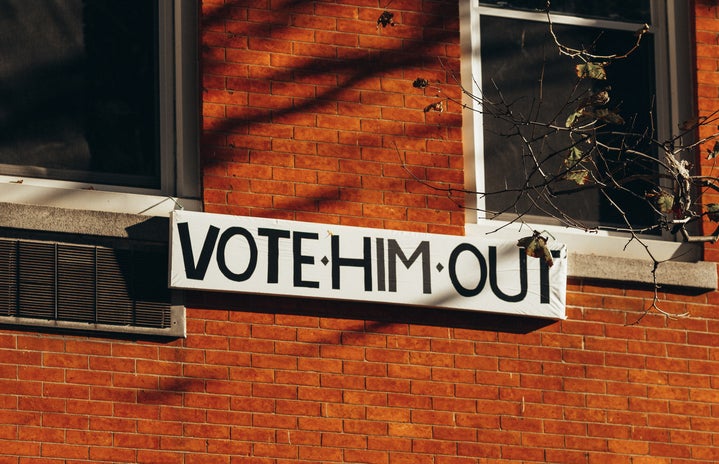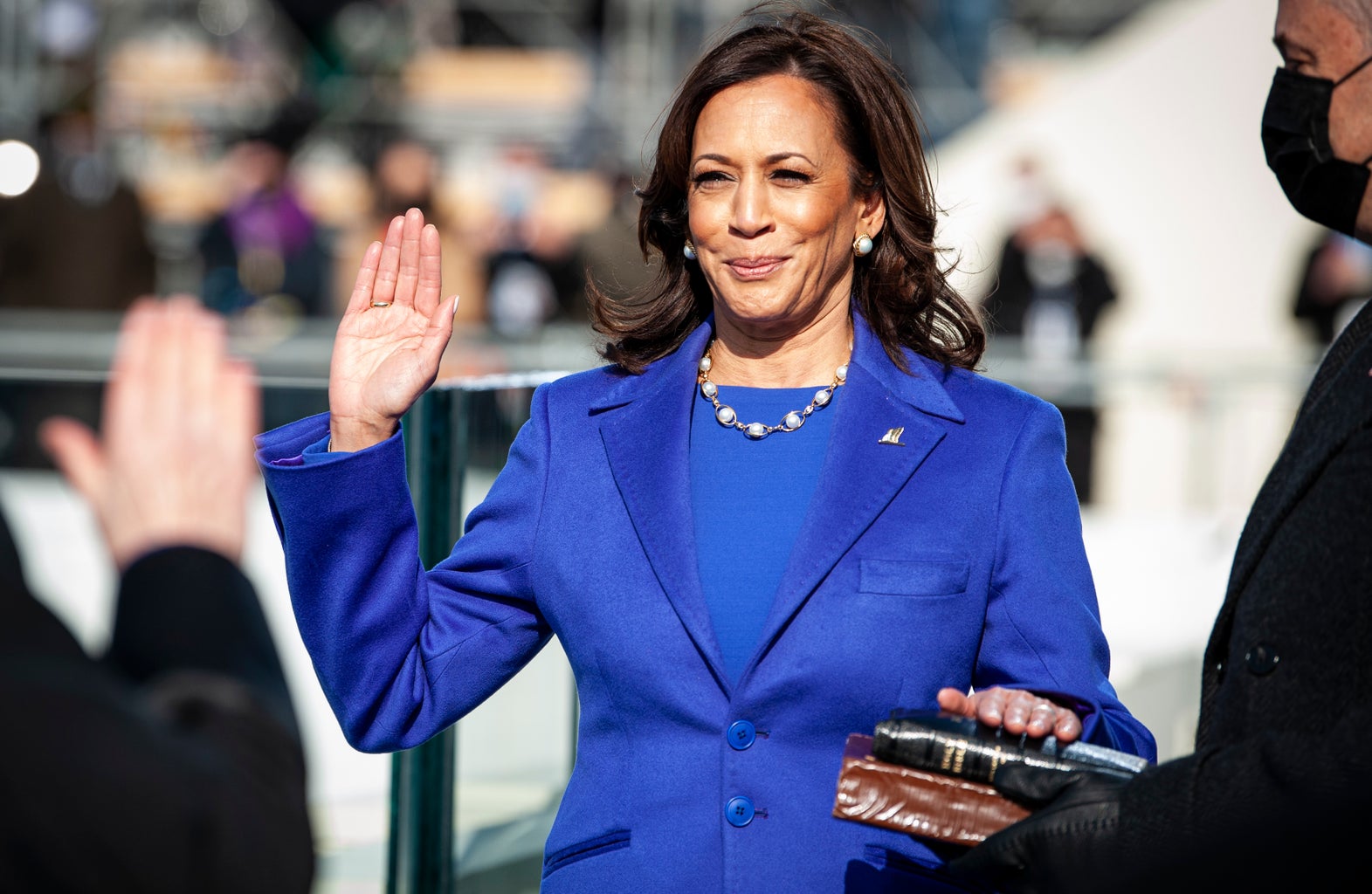I woke up last Wednesday morning with a sickening pit of dread in my stomach. Not because I had a six-page paper due the next day or because I was in the throws of preparing for yet another midterm. The powerful, nausea-inducing wave of despair came from learning that Donald Trump became President-Elect of the United States with 312 electoral votes—a significant lead over current Vice President Kamala Harris, according to AP News.
As a young Black woman and first-generation Ghanaian American passionate about politics, I was excited to witness Harris—a Black and South Asian woman, daughter of immigrants, and a public servant from a working-class background—become commander-in-chief at such a crucial time in our country’s history.
Throughout my childhood and adolescence, I saw my beloved country crumble into increasingly polarized partisan factions, and President-Elect Donald Trump’s divisive rhetoric has only widened this ideological chasm.
Amid this overwhelming cacophony of emotions, here are the major takeaways from my unique intersectional perspective on the election results.
America is Not Ready for a Female President.
This election has reignited gender divides nationwide, with abortion and reproductive rights becoming a focal point for both liberals and conservatives. According to a Gallup poll, 37% of Americans considered abortion an “extremely important” issue this election, placing it above other big-ticket items like crime, foreign affairs, and climate change.
Throughout the campaign trail, Harris fiercely reiterated her intent to protect abortion rights from a national ban and restore women’s reproductive freedom nationwide. On the contrary, her opponent repeatedly praised Supreme Court justices—three of which he appointed—for overturning Roe v. Wade and limiting women’s reproductive freedoms in the 41 states with abortion bans, according to PBS.
Despite his rampant misogyny, Trump managed to make inroads with female voters. Although more than half of female voters aged 18-44 cast their ballot for Harris, 43% of this demographic voted for Trump, according to the AP VoteCast. The racial differences among women are even more stark, with Trump gaining 53% of the overall white female vote and 38% of the Latina vote, as opposed to only 9% of Black female voters.
Most importantly, Trump’s victory demonstrated that between an overqualified public servant and defender of human rights, and a twice-impeached former president who is also a convicted felon on 34 counts (and has yet to concede his loss in 2020), America disappointingly chose the latter.
My face still burns from this metaphorical slap to all American women.
America Failed Black Women (Again)

Malcolm X once said: “The most disrespected person in America is the black woman.”
Reading these words after Harris’s defeat cements the devastating pit in my stomach. There is no doubt that the bedrock of the Democratic Party is Black women, especially because 89% of Black women cast their ballots for Harris in this election, according to the AP VoteCast.
In each election, various ideological and political reasons influence voters casting their ballots for their preferred candidate. However, this election was deeply and unanimously personal for Black women nationwide. My cheerful anticipation to see someone I can identify with hold office quickly melted into dread upon seeing the mostly red electoral map.
After centuries of being marginalized and belittled by our country, Black women still voted in support of it. We voted for democracy, for the right to disagree with our president. Despite this atmosphere of division and uncertainty, I take pride in the fact that Black women were the largest demographic to vote for “Liberty and justice for all.”
The Fight is Not Over
Black women may have lost this time, but we will not be defeated.
Before we gained the right to vote, we watched other members of our race and gender proudly perform their civic duty. We have been enslaved, segregated from our non-Black counterparts, and humiliated. We have been denied our reproductive rights, and we currently possess the highest mortality rate for women during childbirth, according to the CDC.
From Shirley Chisholm to Kamala Harris, we have been barred from the prestige of holding our country’s highest office. We have to work twice as hard to receive half the credit. Nonetheless, we are not going to give up.
Like many Black women nationwide, I am still mourning the dangerous precedent that the election of a convicted felon into office has set for our country. My grief is palpable, my tears are blinding, and my disappointment stretches far and wide, but I will not let this defeat consume me.
“This is not a time to throw up our hands. This is a time to roll up our sleeves,” Harris proclaimed in her concession on Nov. 6.
Black women have responded to this call to action throughout history, building our country up and advocating for human rights when our counterparts repeatedly ignored our plight.
To the young Black women reading this, I know you are disappointed. I know you feel like giving up. I know you question whether someone you can identify with will ever lead our country. I know you feel like taking a step back from politics. But I urge you not to become disillusioned with the government. Cynicism will only breed more discontentment, division, and loss.
We have every right to be frustrated and fatigued, but we do not have the privilege of surrendering. Many of us resonate with Kamala Harris. When she lost, we felt like we lost. When she conceded, we bore the weight of her concession. But Harris was able to smile and embrace hope as she announced her defeat. So dry your tears, young Black women, and let us do the same.
“When we fight, we win.” – Kamala Harris
Want to keep up with HCBU? Make sure to like us on Facebook, follow us on Instagram, check out our Pinterest board, watch us on TikTok, and read our latest Tweets!




